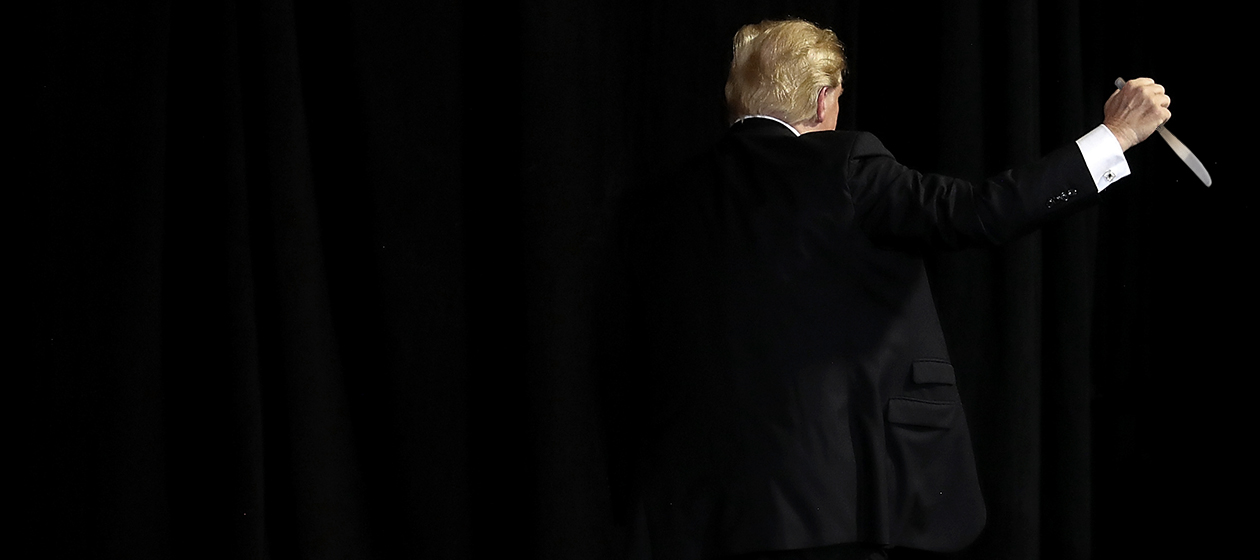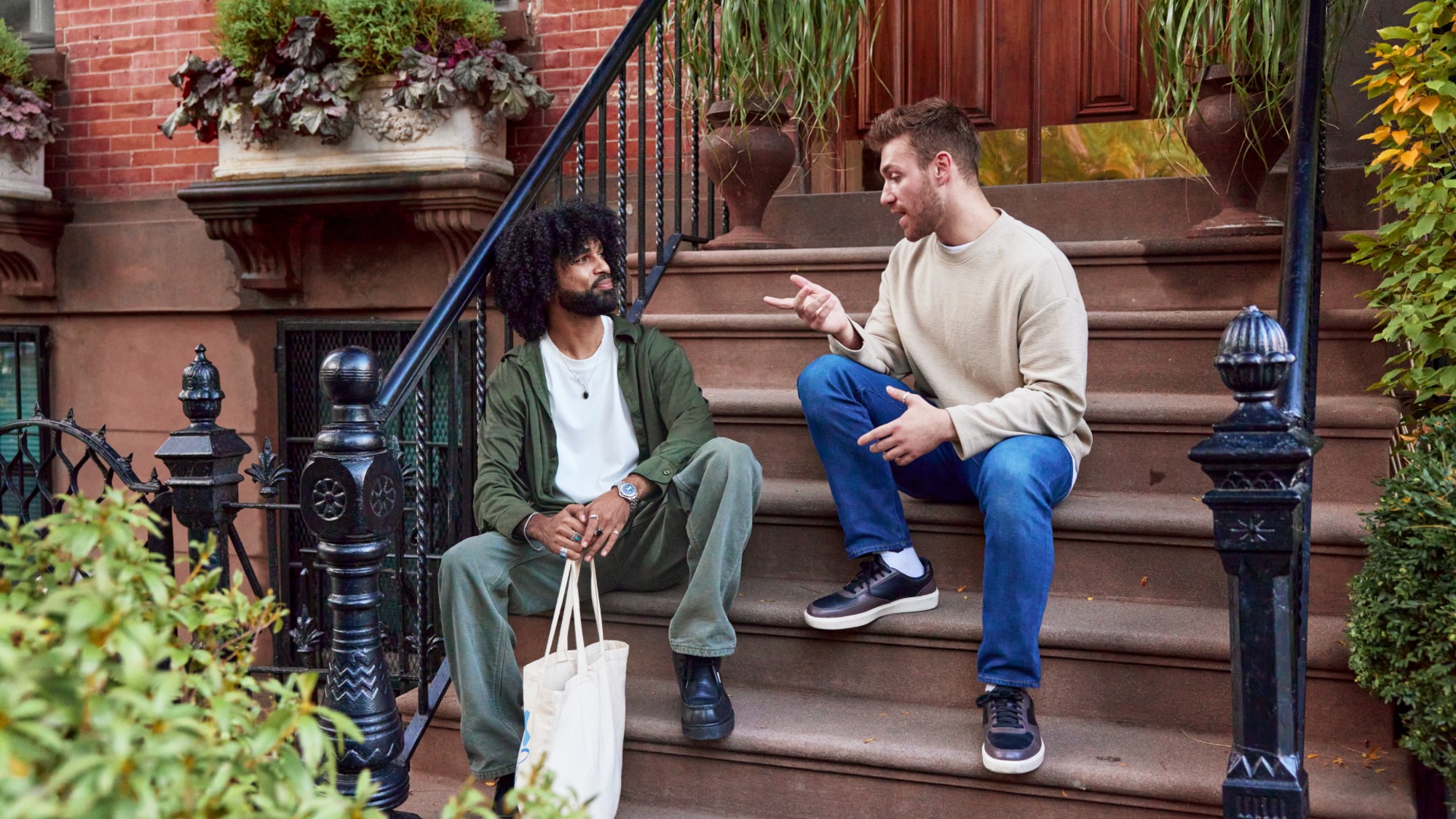Trump won't kill the media with a belligerent frontal assault. It will be a dull knife to the back.
Don't fear the "fake news" tweets. Fear the stealth campaign to spy on the press.


President Trump loves to rail against the media, which he casts as a willfully deceptive foe of the American public. To wit:
I am a member of the media. Though I'd note the press can — and did with Iraq in 2002 and 2003 — play a regrettable role in ginning up support for war, I obviously have no sympathy for the president's anti-press slander. Journalists are fallible, biased, and sometimes lazy humans, just like everyone else, but we are emphatically not the traducers Trump describes.
Still, I'm not as riled up as some of my colleagues. Perhaps my outrage reserves are simply drained, but I'm just not convinced Trump's gripes about the media are worth the panic they have fueled.
The Week
Escape your echo chamber. Get the facts behind the news, plus analysis from multiple perspectives.

Sign up for The Week's Free Newsletters
From our morning news briefing to a weekly Good News Newsletter, get the best of The Week delivered directly to your inbox.
From our morning news briefing to a weekly Good News Newsletter, get the best of The Week delivered directly to your inbox.
The fears raised are of a few kinds. Some fear the president's constant undermining of the press as "fake news" will dilute the very idea of objective truth and kneecap trust in American institutions. Many polls have shown this to be true, to some degree.
Other observers worry the president is ginning up support for an end to the free press in America. In this vein, a popular progressive Christian writer, Rachel Held Evans, on Sunday called for prayer for journalists, suggesting Trump seeks to head a regime that can permanently silence his media critics:
This critique, while overblown, is not wholly without merit. Indeed, a new poll published Tuesday found more than 40 percent of Republicans believe Trump should be able to shut down news outlets for their "bad behavior." That's not an endorsement for the assassination Evans envisions, but it's not okay.
Another fear is one of Trump-inspired violence. Sooner or later, as Hamilton Nolan wrote at Splinter News, "someone is going to get killed. Whether it's Jim Acosta shot down at a Trump rally or some nameless local political reporter stalked and murdered in private, it will happen because someone out there will have become convinced that it is the right thing to do. To protect America."
A free daily email with the biggest news stories of the day – and the best features from TheWeek.com
Over at The New York Times, Brett Stephens — who received a deeply disturbing voicemail threatening his life — likewise argued that a day is coming "when blood on the newsroom floor will be blood on the president's hands."
At least one study has shown a correlation between Trump's rhetoric and a rise in violence against his marks: Researchers at the University of Warwick found a spike in anti-Muslim hate crimes "mainly in U.S. counties that had high Twitter usage, and this link only showed up after the start of Donald Trump's presidential campaign." Causation is impossible to prove in this case, but common sense suggests Trump's tweets have consequences.
Yet the president's attempt to foster a climate of hate against the press is not quite the same as when an ethnic or religious minority is his prey. Journalists are all adults who chose this profession; who expect (or should expect) an often adversarial relationship with politicians and the state; and who are not identifiable by some external feature, like religious garments or the color of our skin.
Most crucially, the press has rhetorical and organizational means to defend ourselves in the court of public opinion in a way many of Trump's other targets do not. By definition we have an amplified voice in the public square. We are equipped to debunk Trump's lies and share the aims and principles that motivate our work. Tweeting attacks on the press from the Oval Office, Trump is punching down, but not nearly so far down as when he throws a swing at Syrian refugees or Latin American asylum seekers.
Journalists are not immune to violence, but we are as well situated as any group can be to neutralize Trump's venom.
Moreover, for all his whining and fantasy revenge, Trump knows he needs the media. "Attention creates value" for Trump, Ezra Klein explained at Vox earlier this year. "His rule, his realization, is that you want as much coverage as possible, full stop. If it's positive coverage, great. If it's negative coverage, so be it. The point is that it's coverage — that you're the story, that you're squeezing out your competitors, that you're on people's minds."
Yes, the president can directly reach a lot of people on Twitter, but not nearly as many as he likes to think. Areas with higher Twitter usage tend to be vote blue and tune into MSNBC over Fox. Trump has 53 million Twitter followers, but those are not 53 million fans. The average Trump voter is an older white man who didn't go to college. The average Twitter user is a young, college-educated, non-white man who doesn't live in America. Even on Twitter, Trump needs the media to get the attention he wants. As he phrased it in an interview with Fox, "when I put it out, you put it immediately on your show."
None of that means Trump poses no threat to freedom of the press. But the threats are more gradual and mundane than assassination, and they did not start with this administration. If Trump decides "to throw a whistle-blower in jail for trying to talk to a reporter, or gets the FBI to spy on a journalist," James Risen wrote at The New York Times shortly after the election, he would be embracing "the aggressive crackdown on journalists and whistle-blowers that is an important yet little understood component of" former President Barack Obama's legacy:
[The Obama administration] prosecuted nine cases involving whistle-blowers and leakers, compared with only three by all previous administrations combined. It has repeatedly used the Espionage Act, a relic of World War I-era red-baiting, not to prosecute spies but to go after government officials who talked to journalists.Under Mr. Obama, the Justice Department and the FBI have spied on reporters by monitoring their phone records, labeled one journalist an unindicted co-conspirator in a criminal case for simply doing reporting, and issued subpoenas to other reporters to try to force them to reveal their sources and testify in criminal cases. [The New York Times]
Unlike assassinations, subpoenas and surveillance are a perfectly plausible and immediate threat to the media because of this precedent and because they will generate so little uproar. Americans have long since demonstrated they do not care much about their own privacy. Why would they care about it for journalists?
Already, the Trump Department of Homeland Security is working on a program to list and track hundreds of thousands of news outlets, journalists, bloggers, and "influencers" in traditional and new media alike. The plan is to analyze targets' "sentiment," monitor "any and all" coverage of select news stories, and possibly share data with "federal, state, local, tribal, and private partners."
As I wrote of the plan in April, the potential for abuse is enormous. We should be worried about the uses Trump — or any future administration with a petty executive and a loose commitment to civil liberties — might find for a list like this. No good can come of it.
It's this program — a quiet and incredibly dangerous little project that has already slipped off everyone's radar — that represents a real threat to the free press for which we ought to muster our outrage. Trump's tweeted rhetoric is not innocuous, but his most effectual attacks on the media will not be this sort of dramatic frontal assault. They will be a dull knife to the back.
Bonnie Kristian was a deputy editor and acting editor-in-chief of TheWeek.com. She is a columnist at Christianity Today and author of Untrustworthy: The Knowledge Crisis Breaking Our Brains, Polluting Our Politics, and Corrupting Christian Community (forthcoming 2022) and A Flexible Faith: Rethinking What It Means to Follow Jesus Today (2018). Her writing has also appeared at Time Magazine, CNN, USA Today, Newsweek, the Los Angeles Times, and The American Conservative, among other outlets.
-
 The billionaires’ wealth tax: a catastrophe for California?
The billionaires’ wealth tax: a catastrophe for California?Talking Point Peter Thiel and Larry Page preparing to change state residency
-
 Bari Weiss’ ‘60 Minutes’ scandal is about more than one report
Bari Weiss’ ‘60 Minutes’ scandal is about more than one reportIN THE SPOTLIGHT By blocking an approved segment on a controversial prison holding US deportees in El Salvador, the editor-in-chief of CBS News has become the main story
-
 Has Zohran Mamdani shown the Democrats how to win again?
Has Zohran Mamdani shown the Democrats how to win again?Today’s Big Question New York City mayoral election touted as victory for left-wing populists but moderate centrist wins elsewhere present more complex path for Democratic Party
-
 Millions turn out for anti-Trump ‘No Kings’ rallies
Millions turn out for anti-Trump ‘No Kings’ ralliesSpeed Read An estimated 7 million people participated, 2 million more than at the first ‘No Kings’ protest in June
-
 Ghislaine Maxwell: angling for a Trump pardon
Ghislaine Maxwell: angling for a Trump pardonTalking Point Convicted sex trafficker's testimony could shed new light on president's links to Jeffrey Epstein
-
 The last words and final moments of 40 presidents
The last words and final moments of 40 presidentsThe Explainer Some are eloquent quotes worthy of the holders of the highest office in the nation, and others... aren't
-
 The JFK files: the truth at last?
The JFK files: the truth at last?In The Spotlight More than 64,000 previously classified documents relating the 1963 assassination of John F. Kennedy have been released by the Trump administration
-
 'Seriously, not literally': how should the world take Donald Trump?
'Seriously, not literally': how should the world take Donald Trump?Today's big question White House rhetoric and reality look likely to become increasingly blurred



